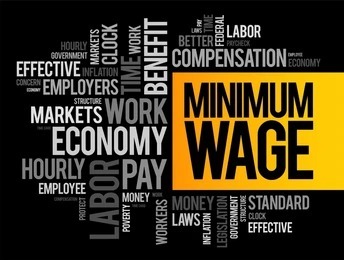I have always found the whole income insufficiency relative to the cost of living discussions very fascinating. These discussions are often the harbinger of labour union strike actions, the excuse given for criminal activities of criminal minds, and the narrative often leveraged for social and political gamesmanship.
However, the conversation is very surface analytics driven without proper, contextual review for a balanced reflection.
Income, wages, salaries, etc. are all rewards for a service provided. Thus, one of the questions to ask is, are people being underpaid for services provided, or are they demanding an increment just because the cost of third-party goods and services has increased?
This distinction is important because of the fundamental principle of emoluments for services rendered. Emoluments are not charity. They are the rightful entitlement of the service provider.
This brings us to the productivity element in the entire conversation. Institutions, public and private, were not designed as charity centres. They are service providers.
This means that the workers in these institutions are getting paid for the service they provide. These services will facilitate the ability of the employer to meet his own obligations to his employees.
Many are fond of income and purchasing power parity comparisons to Western economies. However, they ignorantly, mischievously, or naively ignore some fundamental pillars of such economies.
For reference, over there in the ‘abroad’, people are paid by the hour. The hourly rate is commensurate to the level of work and the qualifications/competence of the service provider.
Interestingly, one’s hourly work input is benchmarked with well-defined deliverables. You are allotted a break period to relax, conduct personal business, and use as you see fit.
But work time demands work. There is no time for frivolities as the ability of the entire enterprise to meet its obligations is dependent on your ability to meet your productivity quota. Basically, you work for your pay!
Thus, an increase in wage demand is highlighted against productivity outcomes. Further, one’s lifestyle is adjusted to one’s income bracket. Every service you need for a comfortable lifestyle is based on how much productivity value you’ve contributed.
Now, let us compare it with the Nigerian scenario. Our civil servants actively run private businesses during work hours. They sabotage processes in exchange for bribes. They facilitate corrupt practices by compromised officials. They barely put in a dedicated 2 hours of work daily out of the 8 hours of employment. But they expect to be fully remunerated for their inefficiencies. In fact, they demand an increase in wages as a reward for their inefficiencies.
But it is not only applicable to the public sector. The private sector is not different. The same shenanigans and inefficiencies are hallmarks of many employees. 2-hour lunch breaks, late attendance, office gossip, inefficiencies, corrupt practices, etc.
Many leave their homes very early in the morning and return very late at night, but their entire productivity as a daily average is less than 1-2hours. Yet they expect their employers to pay up in full come remuneration time.
In a system laden with systemic inefficiencies, where productivity lags behind revenues, it is expected that costs will continue to rise as demand outstrips supply.
The lure of ‘office’ work and ‘quick’ money means everyone is playing ‘street smart’. What many ignore is that this inadvertently means they are just recycling a trend of cheating each other and expecting someone else to pay.
If farm produce is reduced, approvals face bottlenecks and bribery, supply prices are inflated to accommodate avarice and greed, systems are sabotaged to facilitate contract awards and alternative supply channels, criminals are excused due to political affiliations, religion and ethnicity are used as excuses for incompetence or leverages for phantom discrimination, etc. how will the rot be stopped?
A constant demand for increment of wages and incessant reference to the cost of living and purchasing power parity without addressing the critical value creation productivity, which should form the basis, are exercises in self-deceit.
As a country, there is a need to address a paradigm shift in our understanding of the work-reward structure. Productivity should be the benchmark for reward, not sentiments or mere qualifications and attendance.
The question is not if we are earning enough. The question should be, are we providing, creating, developing, etc. enough to justify the expected income and lifestyle? This benchmark should cut across from the very top, elected officials, and senior civil servants, all the way down to the lowest income earner in the country!
We need to eliminate a lot of the red tape and bureaucratic wild bushes that choke productivity and efficiency in the system whilst creating a market for corruption, recycled suffering, and generational malcontent
This cuts across every ill in the system. We, as a nation, have created profitable ventures for criminal and pseudocriminal activities, causing our collective suffering across every point of complaint
Nature abhors a vacuum. Do not be surprised if the void created by poor productivity standards is filled with inflation and a high cost of living. What you sow is what you get
Femi Onakanren is a Business Consultant and a Socioeconomic Policy Analyst. He writes from Lagos.
Gatekeepers News is not liable for opinions expressed in this article, they’re strictly the writer’s

























































